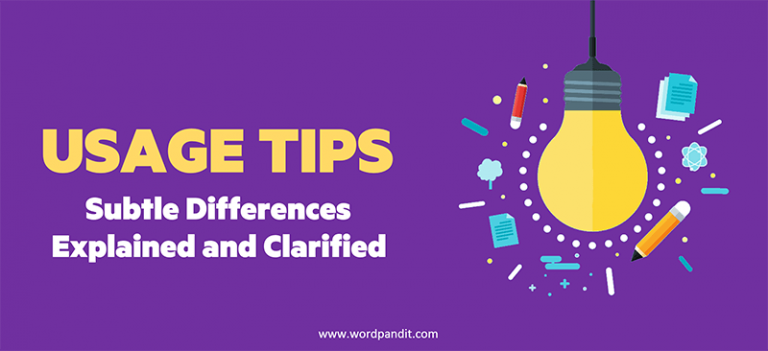Beatify vs. Beautify ✨
Have you ever come across the words “beatify” and “beautify” and felt a bit confused? 🤔 You wouldn’t be alone! These two words look remarkably similar, but their meanings couldn’t be more different. Knowing the distinction can save you from an embarrassing mix-up—like accidentally saying that someone made a person into a saint when they just gave them a makeover. Let’s unravel these two words in a simple, relatable way and make sure you know exactly when to use each one. This kind of mix-up can be funny in hindsight but also quite awkward, so let’s dive in and make it clear. 😅
Beatify ✝️
Definition: Beatify means to declare someone as blessed or to bestow a particular religious honor, typically in the Roman Catholic Church. It’s a formal step on the path to sainthood, often a significant recognition of someone’s piety and the miracles they have performed.
Pronunciation: bee-AT-uh-fy 📣
Etymology: The word “beatify” originates from the Latin beatus, meaning “blessed.” The term has deep roots in religious contexts, particularly in the Catholic tradition, where it signifies an important step before canonization.
Usage Examples:
- “The church decided to beatify the nun for her lifelong dedication to helping others, recognizing her extraordinary devotion and the miracles attributed to her prayers.” 🙏
- “It was a joyous occasion when the priest was beatified after years of service, and people from all over gathered to celebrate his life and contributions.” 🎉
Synonyms: bless, canonize (although canonize is the next step after beatification), sanctify ✨
Antonyms: condemn, denounce, vilify ❌
Beautify 🌸
Definition: Beautify means to make something or someone more attractive or visually pleasing. It’s used for physical enhancements, whether it’s about a place, a person, or an object.
Pronunciation: BYOO-tuh-fy 📣
Etymology: “Beautify” comes from the word “beauty,” with roots in the Old French bealte, ultimately derived from Latin bellus, meaning “beautiful.” The term has evolved to signify the act of adding aesthetic value or making something look visually appealing.
Usage Examples:
- “She decided to beautify her garden with new flowers and decorative stones, turning it into a vibrant and peaceful space for relaxation.” 🌼🌿
- “The community worked together to beautify the park, planting trees, adding benches, and creating a space everyone could enjoy.” 🌳💚
- “He wanted to beautify his living room, so he added some colorful cushions and a new rug to make it feel cozier.” 🛋️✨
Synonyms: adorn, embellish, decorate, enhance 🖌️
Antonyms: spoil, deface, ruin, mar ❌
Comparison and Contrast 🔄
So, what’s the big difference? 🤷♂️ While beatify involves a religious act of declaring someone blessed, beautify is all about making something more beautiful. Think of beatify as dealing with spiritual elevation and beautify as dealing with physical appearance. A simple mistake between these two words could lead to a hilarious misunderstanding—you wouldn’t want to say you beautified a saint, would you? 😂 Imagine telling someone you helped to beatify a garden; that would sound quite strange indeed!
Contextual Usage:
“The Pope decided to beatify the nun for her devotion, while the townspeople beautified her old convent to honor her memory.” Here, both words are used to show their different roles—one spiritual, the other visual. It’s a perfect example of how mixing them up could lead to a confusing or humorous situation.
Mnemonic Device 🧠
To remember the difference, think: Beatify = Bless, while Beautify = Beauty. If it has to do with blessings and sainthood, it’s beatify. If it’s about making something pretty, it’s beautify. A quick way to keep them apart is to focus on the “t” in beatify, which can remind you of a religious “title” being given to someone. On the other hand, the “u” in beautify can remind you of “you” making something prettier. ✨
Related Words 🔗
Here are some other word pairs you might want to check out that are similarly confusing:
- Eminent vs. Imminent: One means well-known or respected, while the other means something is about to happen. ⏳
- Affect vs. Effect: Affect is usually a verb, while effect is typically a noun. 🔄
- Imply vs. Infer: The speaker implies, and the listener infers. Understanding the direction of information flow is key to getting these right. 🔁
Conclusion ✅
By now, you should have a clear understanding of the difference between beatify and beautify. One elevates someone spiritually, and the other enhances physical appearance. Keep this in mind, and you’ll never mix them up again! Whether you’re talking about someone being honored by the church or simply making a room look nicer, you’ll know which word to use. So go ahead and impress others with your precise language skills! 💬✨
Test Your Knowledge: Beatify vs. Beautify Quiz
1. The Pope decided to ___ the priest for his acts of kindness.
2. The city council wants to ___ the town square with new plants.
3. Beautify means to declare someone blessed.
4. Which of the following is a synonym for Beatify?
5. They worked tirelessly to ___ the old church before the big celebration.
6. Which of the following words means ‘to make something beautiful or attractive’?
7. The Pope decided to ___ the nun, while the villagers worked to ___ her chapel.
8. Which word comes from Latin meaning ‘beautiful’?
9. Beatify can be used to describe making something more attractive.
10. The Pope decided to ___ the saint, but also wanted to ___ the chapel where she prayed.













